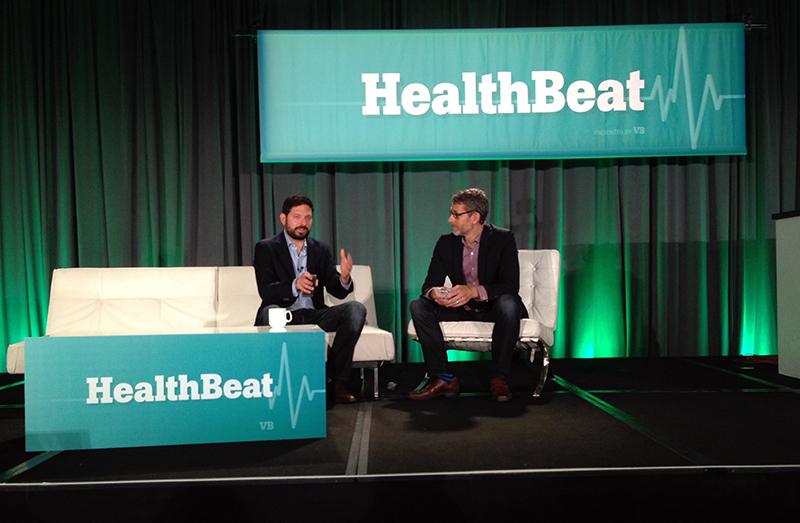
Doctors, hospital administrators, venture capitalists, and budding entrepreneurs gathered in San Francisco this week to assess the current state of technology adoption in the medical profession at the annual HealthBeat Conference. The overwhelming consensus was clear: the medical industry is woefully behind in using new tech tools available today and consumers will force them to fix that problem quickly.
A steady parade of speakers at the conference expressed frustration at the reluctance of their industry to adopt new technologies which have been flooding the medical marketplace and the bureaucracy that impedes their use. "The rest of the world operates like Facebook, but the medical industry operates like it was thirty years ago," said Greg Biggers, CEO of Genomera.
On Tuesday, Bryan Sivak, the Chief Technology Officer for the U.S. Health and Human Services agency, highlighted this dilemma by talking about an example that is currently dominating the news: the expanding Ebola crisis. According to Sivak, the processes and tools typically used by the Centers for Disease Control (CDC) to combat a global outbreak "have not kept up with the modern era."
He cited the CDC's cumbersome posting of "pdf" based documents on their website as an example, since this requires a great deal of human intervention to find, download, and use. "It's not the most efficient way to notify the universe," the agency officer told HealthBeat attendees.
Instead, Sivak is pushing for the CDC to adopt content syndication tools which will automate the flow of information from one source to critical groups more quickly.
Participants this week also expressed a strong belief that the ways in which physicians interact with each other and their patients are on the verge of undergoing a revolutionary change, driven largely by technology. This will start by eliminating embarrassingly out-of-date tools. "There are two groups of people who still use pagers: drug dealers and hospital staff," said Ed Martin, IT Director for the UCSF Medical Center. "I think even the drug dealers have moved on."
To improve this situation, Martin and physicians at UCSF collaborated with a company called MuleSoft to build CareWeb, a new product that blends the hospital's medical records, Salesforce tools, and pager system into one seamless communications platform. "We've basically created a digital channel around the patient," said Ross Mason, MuleSoft founder.
Patients are also emerging as a significant force in pushing doctors and healthcare systems to embrace new technology. Frustration over the difficulty in obtaining critical test results quickly led Ramin Bastani to create Healthvana, a free app that sends medical testing information directly to a smartphone.
Another example of patient-driven change can be found in Twine Health, which was created to provide closer interaction between patients and "health coaches" who monitor key indicators for chronic health disease care. The new site was founded by John Moore, a former doctor who quit his practice because he said he was "embarrassed" over the weak follow-up he was able to provide his patients after diagnosis.
The company provides a cloud-based software platform for collaborative care. Twine has formed a partnership with Rushika Fernandopulle, a doctor and co-founder of Iora Health. As Fernandopulle told the gathering, "At seven minutes a visit, with no real tools, we're kidding ourselves if we think we can properly manage patients that way."
The lively discussion at HealthBeat this week points to a profession that knows it desperately needs to change, but is struggling to overcome both the regulatory barriers and an ingrained wariness about using new tools. What will ultimately make the difference is the commitment by doctors to do what they know best: taking care of their patients. As Jordan Shlain, founder of HealthLoop, put it yesterday, "Medicine is a people business in need of technology, not a technology in need of people."
















